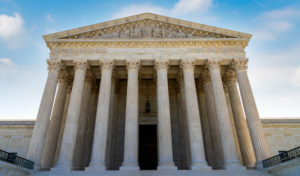A New Approach to Regulating Credit-Scoring AI
Scholar presents regulatory solutions to problems posed by using AI to determine credit scores.
Immigration Surveillance in Health Care
Scholar calls for increased protections for noncitizens within the health care system.
Transferring Military Skills to Civilian Employment
GAO recommends the U.S. Department of Defense improve servicemember credentialing programs.
Regulating Big-Cat Ownership
Scholar argues for the strengthening of USDA regulations in big-cat ownership and exploitation.
Antitrust Can Be Antiracist
Scholars argue that antitrust law can complement antidiscrimination law in the fight against systemic racism.
Protecting Abortion Post-Roe
Scholars offer suggestions for protecting abortion rights if the Supreme Court overturns Roe v. Wade.
Sniffing Out New Regulation
Scholars propose to modify the current regulatory regime for animal-based medical diagnostics.
Forcing Marginalized Communities to Compete
Scholar argues that pension fund managers have pitted vulnerable retirees against marginalized communities.
One Small Step for Space Law
Scholar discusses the impact of NASA’s Artemis Accords on existing international space law.
How the Current Siting Regime Stifles Renewable Energy
Scholar argues for changes to siting regulations to speed up renewable energy deployment.
DNA Testing in Immigration Control
Scholar cautions against the increasing use of biometric testing by immigration authorities.
A Belief-Based Approach to Workplace Accommodations
Scholar calls for employers to adopt hands-off policies when accommodating employees with disabilities.












